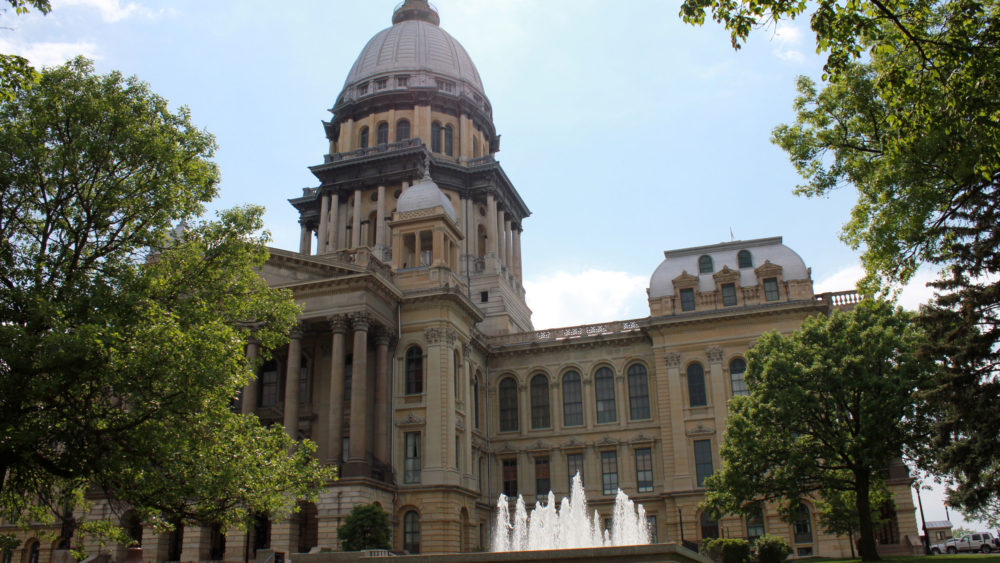
Illinois State Capitol Building
Illinois Gov. JB Pritzker signed Amendment to House Bill 716, requiring judicial candidate committees to report all persons who have contributed in excess of $500 to the committee if received from any committee, association or group not required to disclose […]
Illinois Gov. JB Pritzker signed Amendment to House Bill 716, requiring judicial candidate committees to report all persons who have contributed in excess of $500 to the committee if received from any committee, association or group not required to disclose its contributors.
Any political committee that receives such a contribution and fails to report this information must forward the contribution amount immediately to the State Treasurer.
The bill also prohibits self-funding political committees and independent expenditure committees established to support or oppose a state judicial candidate from accepting contributions from any single person, other than the candidate or the candidate’s immediate family, in a cumulative amount exceeding $500,000 in any election cycle.
The bill is effective immediately and applies to judicial elections this year.
May 2, 2022 •
Tennessee Lawmakers Pass Campaign Finance Bill
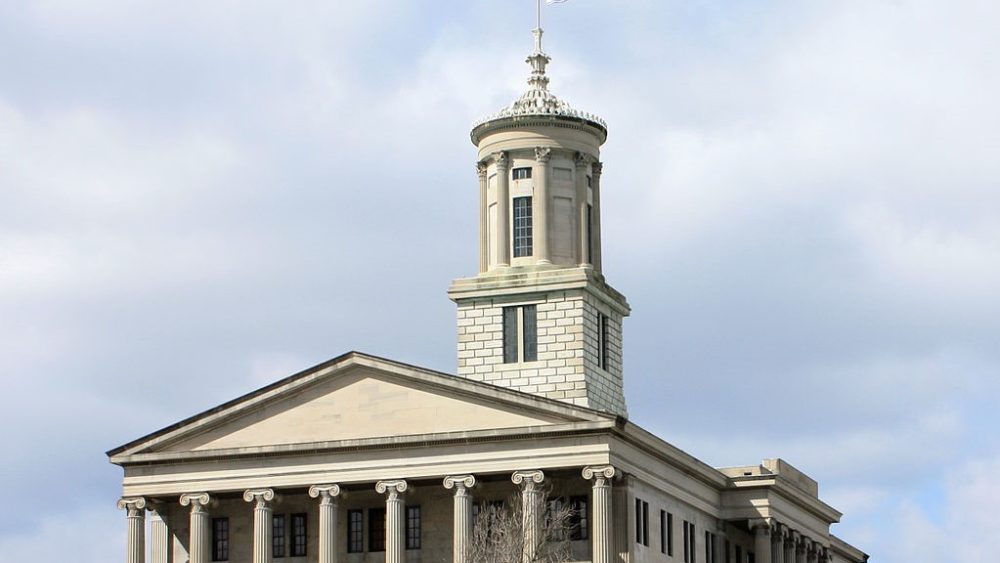
Tennessee State Capitol Building
Last week Tennessee lawmakers overwhelmingly passed House Bill 1201, which requires 501(c)4 organizations to disclose any expenses over $5,000 in the 60 days leading up to an election when using candidate names and images. The bill seeks to create more […]
Last week Tennessee lawmakers overwhelmingly passed House Bill 1201, which requires 501(c)4 organizations to disclose any expenses over $5,000 in the 60 days leading up to an election when using candidate names and images.
The bill seeks to create more transparency for dark-money groups and enhances disclosure laws around campaign service companies.
The bill now goes to Gov. Bill Lee for approval.
November 19, 2021 •
Illinois Passes Law Prohibiting Dark Money Contributions to Judicial Candidates

Illinois State Capitol Building
Illinois Gov. J.B. Pritzker signed legislation prohibiting dark money contributions to judicial candidates. Effective immediately, Senate Bill 536 prohibits a political committee established to support a state judicial candidate from accepting contributions from any out-of-state person and from any entity […]
Illinois Gov. J.B. Pritzker signed legislation prohibiting dark money contributions to judicial candidates.
Effective immediately, Senate Bill 536 prohibits a political committee established to support a state judicial candidate from accepting contributions from any out-of-state person and from any entity that does not disclose the identity of all donors to the entity.
The bill also prohibits any entity that does not disclose the identity of all donors from financing a distribution or broadcast of campaign materials prepared by the candidate, his or her campaign committee, or designated agents.
The bill also increases the threshold for which contributions to a conduit must be itemized from $500 to $1,000.
August 5, 2019 •
Oregon Governor Signs Campaign Finance Reform Bills
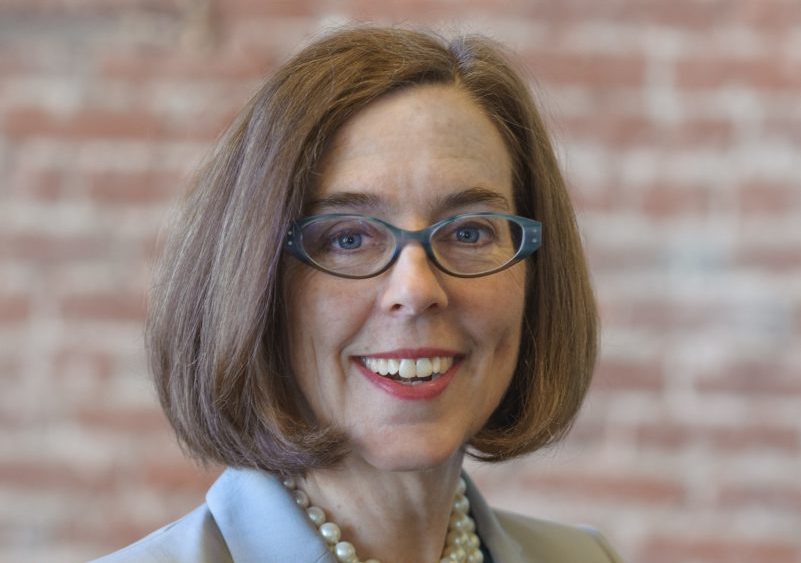
Oregon Gov. Kate Brown
Gov. Kate Brown signed two campaign finance bills requiring more disclosures in Oregon elections. House Bill 2716 requires advertisements supporting or opposing a candidate to disclose who funded them. The bill also requires ads funded by non-candidate PACs to disclose […]
Gov. Kate Brown signed two campaign finance bills requiring more disclosures in Oregon elections.
House Bill 2716 requires advertisements supporting or opposing a candidate to disclose who funded them.
The bill also requires ads funded by non-candidate PACs to disclose the top five donors who have contributed at least $10,000 to those groups.
House Bill 2716 becomes effective December 3, 2020.
House Bill 2983 requires “dark money” groups to disclose their largest donors if they spend more than $100,000 on ads related to statewide races or races in cities or counties with at least 60,000 residents.
For legislative races and contests in smaller jurisdictions, the bill requires groups to disclose donors after spending at least $25,000 on ads.
House Bill 2983 became effective when signed by the governor.
July 8, 2019 •
NYCU Video Digest – July 8, 2019
A bill to stop the revolving door in Congress, new dark money laws in New Jersey, and Oregon passes a slew of new campaign finance and ethics legislation in this edition of News You Can Use Video Digest!
A bill to stop the revolving door in Congress, new dark money laws in New Jersey, and Oregon passes a slew of new campaign finance and ethics legislation in this edition of News You Can Use Video Digest!
May 20, 2019 •
New Jersey Dark Money Disclosure Bill Vetoed
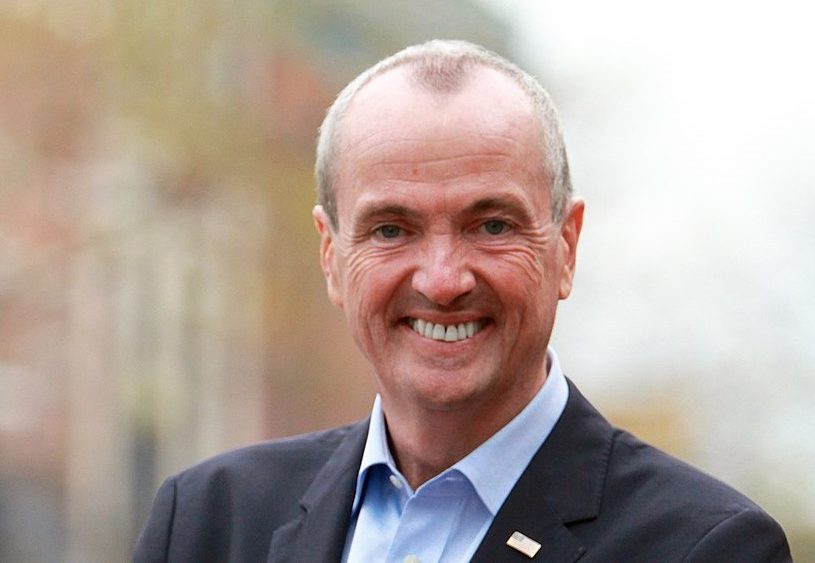
New Jersey Gov. Phil Murphy
Gov. Phil Murphy conditionally vetoed legislation requiring dark money groups spending money to influence elections in New Jersey to disclose their large donors. Senate Bill 1500, carried over from last year’s session, requires disclosure of contributors giving more than $10,000 […]
Gov. Phil Murphy conditionally vetoed legislation requiring dark money groups spending money to influence elections in New Jersey to disclose their large donors.
Senate Bill 1500, carried over from last year’s session, requires disclosure of contributors giving more than $10,000 to 501(c)(4) groups engaging in political activities and lobbying.
In issuing the veto, Gov. Murphy said the bill contained loopholes and inconsistent disclosure standards.
He also expressed concern about the legislation not passing judicial scrutiny because of broad disclosure requirements beyond spending in elections for groups involved in issue campaigns.
The veto went on to recommend requiring companies receiving large scale tax credits from the state to disclose public contracts and political contributions to the New Jersey Election Law Enforcement Commission (ELEC).
The recommendation also sought to strike a provision limiting elected officials from managing dark-money groups.
Supporters of Senate Bill 1500, which overwhelmingly passed both houses, argued the legislation leveled the playing field by requiring all groups to disclose if trying to sway elections, legislation, or policy.
The legislature can attempt an override of the governor’s veto or work towards amending the bill based on the governor’s recommendations.
March 28, 2019 •
Former Arizona Attorney General Launches Campaign Against Dark Money
Former Attorney General Terry Goddard launched an effort to prohibit the use of dark money in political campaigns. The proposed constitutional amendment, called The Voters Right to Know Act, seeks to require anyone spending at least $5,000 to influence the […]
 Former Attorney General Terry Goddard launched an effort to prohibit the use of dark money in political campaigns.
Former Attorney General Terry Goddard launched an effort to prohibit the use of dark money in political campaigns.
The proposed constitutional amendment, called The Voters Right to Know Act, seeks to require anyone spending at least $5,000 to influence the outcome of an Arizona election to disclose the original source of the money.
The disclosure requirement would apply to both state and local elections in Arizona.
In order for the proposal to appear on the ballot in the 2020 general election, the campaign committee behind the citizen initiative will need close to half a million signatures.
Last year, the same campaign committee missed qualification for the ballot by just over 2,000 signatures.
The amendment would require the Citizens Clean Elections Commission to enforce the new campaign finance disclosure rules and exempt the commission’s anti-dark money rules from oversight by the Governor’s Regulatory Review Council.
The proposal coincides with current Attorney General Mark Brnovich investigating whether Tempe’s ordinance banning dark money violates a law passed last year banning cities from enacting their own dark money disclosure regulations.
March 21, 2019 •
Tempe Dark Money Ordinance Under Review
Arizona Attorney General Mark Brnovich will soon rule on whether cities can impose restrictions on dark money in local campaigns. Sen. Vince Leach alleged Tempe violated a state law prohibiting local governments from requiring tax-exempt organizations from registering as political […]
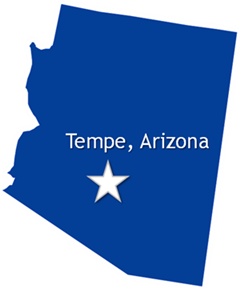 Arizona Attorney General Mark Brnovich will soon rule on whether cities can impose restrictions on dark money in local campaigns.
Arizona Attorney General Mark Brnovich will soon rule on whether cities can impose restrictions on dark money in local campaigns.
Sen. Vince Leach alleged Tempe violated a state law prohibiting local governments from requiring tax-exempt organizations from registering as political committees in 2017 by passing a voter approved ordinance banning dark money contributions.
The law allowing a legislator to demand an attorney general to investigate complaints applies only to ordinances, regulations or other official action adopted or taken by the governing board of a county, city or town.
It is unclear if the authority extends to this voter-approved measure referred to the ballot by Tempe City Council.
Tempe’s dark money ordinance was signed by Gov. Doug Ducey in 2017, as constitutionally required, but he noted it may soon be superseded by state law.
The ordinance in question requires any group spending more than $1,000 during an election cycle to disclose the original source of contributions.
The Office of the Attorney General has 30 days to decide if the complaint has merit.
November 7, 2018 •
Phoenix Passes Amendment Requiring Dark Money Disclosure
Voters in Phoenix overwhelmingly passed Proposition 419, an amendment to the Charter of the City of Phoenix requiring any person, association of persons or entity making expenditures to influence the result of a city election to disclose and identify expenditures […]
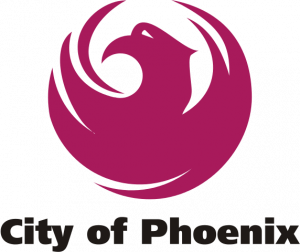 Voters in Phoenix overwhelmingly passed Proposition 419, an amendment to the Charter of the City of Phoenix requiring any person, association of persons or entity making expenditures to influence the result of a city election to disclose and identify expenditures and contributions including original and intermediary sources of major contributions.
Voters in Phoenix overwhelmingly passed Proposition 419, an amendment to the Charter of the City of Phoenix requiring any person, association of persons or entity making expenditures to influence the result of a city election to disclose and identify expenditures and contributions including original and intermediary sources of major contributions.
This is the latest in a nationwide trend to limit the influence of so-called dark money.
Proponents for the proposition argued Proposition 419 was a critical step to restoring the public’s trust in our elections.
The proposition passed 86.1 percent to 13.89 percent.
Gov. Steve Bullock announced he will sign an executive order to further Montana’s goal of shedding light on dark money spending in elections. The executive order applies to new contracts for goods over $50,000 and new services contracts over $25,000 […]
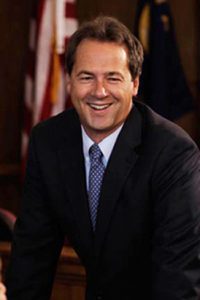 Gov. Steve Bullock announced he will sign an executive order to further Montana’s goal of shedding light on dark money spending in elections.
Gov. Steve Bullock announced he will sign an executive order to further Montana’s goal of shedding light on dark money spending in elections.
The executive order applies to new contracts for goods over $50,000 and new services contracts over $25,000 and requires government contractors who have spent more than $2,500 in the past two years in elections to disclose their donations.
The executive order aims to shed light on contributions not otherwise required to be disclosed.
Gov. Bullock will sign the executive order into law on June 8, 2018.
April 7, 2017 •
Gov. Martinez Vetoes Ethics and Campaign Finance Bills
Gov. Susana Martinez vetoed ethics and campaign finance bills. Senate Bill 393 would have required lobbyists to report expenses on lawmakers and other public officials under $100. Martinez stated she supports transparency, but thought the bill was unclear and could […]
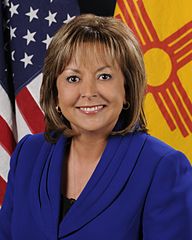 Gov. Susana Martinez vetoed ethics and campaign finance bills.
Gov. Susana Martinez vetoed ethics and campaign finance bills.
Senate Bill 393 would have required lobbyists to report expenses on lawmakers and other public officials under $100. Martinez stated she supports transparency, but thought the bill was unclear and could have several unintended consequences.
Additionally, Martinez vetoed Senate Bill 96 which would have required disclosure of “dark-money” campaign spending by nonprofit groups. Martinez vetoed the legislation because it may discourage charities from advocating for their causes.
July 14, 2016 •
Thursday News Roundup
Campaign Finance “Super PAC Spending Becoming More Bipartisan” by Llewellyn Hinkes-Jones for Bloomberg BNA “Koch-Backed ‘Dark Money’ Groups Fined for Failing to Disclose Donors” by John Dunbar for Center for Public Integrity California: “Oakland: Company laundered campaign donations to mayoral, […]
 Campaign Finance
Campaign Finance
“Super PAC Spending Becoming More Bipartisan” by Llewellyn Hinkes-Jones for Bloomberg BNA
“Koch-Backed ‘Dark Money’ Groups Fined for Failing to Disclose Donors” by John Dunbar for Center for Public Integrity
California: “Oakland: Company laundered campaign donations to mayoral, council candidates” by Matthias Gafni for East Bay Times
New Jersey: “Jail for Birdsall Exec in Pay-to-Play Scheme” by Andrew Ford for Asbury Park Press
Ethics
South Carolina: “SC Supreme Court Rules for Pascoe, Against Wilson” by Tim Smith for Greenville News
Tennessee: “Jeremy Durham Had Sexual ‘Interactions’ with 22 Women, Report Says” by Dave Boucher and Joel Ebert for The Tennessean
Elections
“Sidewire: The chatter site for political junkies who haven’t already maxed out” by Ben Terris for Washington Post
“Americans Really Dislike Trump, Clinton. So Why Aren’t Third Parties Doing Better?” by Danielle Kurtzleben for National Public Radio
“Justice Ginsburg Doesn’t Let Up on Trump, Who Fires Back” by Robert Barnes for Washington Post
Florida: “Florida Mosque Is Removed as a Polling Site after Complaints and Threats” by Mary Hui for Washington Post
June 16, 2016 •
Thursday News Roundup
Campaign Finance “House Votes to Protect ‘Dark Money’ Political Donors” by David Morgan for Reuters Arizona: “FBI Questions Former Utility Regulator, APS, Corporation Commission” by Ryan Randazzo for Arizona Republic Connecticut: “Agency Approves Settlement That Would End Probe of Democrats’ […]
 Campaign Finance
Campaign Finance
“House Votes to Protect ‘Dark Money’ Political Donors” by David Morgan for Reuters
Arizona: “FBI Questions Former Utility Regulator, APS, Corporation Commission” by Ryan Randazzo for Arizona Republic
Connecticut: “Agency Approves Settlement That Would End Probe of Democrats’ Spending On Malloy Re-Election” by Jon Lender for Hartford Courant
Ethics
New Jersey: “Emails Appear to Show Christie Was Told About Political Activities of His Office” by Matt Friedman and Ryan Hutchins for Politico
Rhode Island: “No Moratorium as Ethics Bill Advances in R.I.” by Jennifer Bogdan for Providence Journal
Elections
“A New Phase for Trump’s Media War” by Niall Stanage for The Hill
“Two Years Ago, Eric Cantor Lost His House Seat. Was It Just in The Nick of Time?” by Roxanne Roberts for Washington Post
District of Columbia: “Vincent Gray Wins D.C. Council Seat, Makes Political Comeback” by Aaron Davis and Fenit Nirappil for Washington Post
Ohio: “ACLU Sues Cleveland Over Republican National Convention Protest Rules” by Andrew Tobias for Cleveland Plain Dealer
June 9, 2016 •
Thursday News Roundup
Lobbying Ohio: “Lobbyist John Raphael Sentenced to 15 Months in Federal Prison” by Lucas Sullivan for Columbus Dispatch Rhode Island: “General Assembly Passes Lobbying Reform Act” by Christian Winthrop for Newport Buzz Campaign Finance “Trump’s Fundraisers See No Chance of […]
 Lobbying
Lobbying
Ohio: “Lobbyist John Raphael Sentenced to 15 Months in Federal Prison” by Lucas Sullivan for Columbus Dispatch
Rhode Island: “General Assembly Passes Lobbying Reform Act” by Christian Winthrop for Newport Buzz
Campaign Finance
“Trump’s Fundraisers See No Chance of Hitting $1 Billion” by Alex Isenstadt for Politico
New York: “NY Gov. Cuomo Wants New Limits on Secret Campaign Funds” by David Klepper for The Associated Press
Tennessee: “Jeremy Durham Faces Subpoena in New State Investigation” by Joel Ebert and Dave Boucher for The Tennessean
Texas: “Council to Consider Dark Money Ordinance” by Jack Craver for Austin Monitor
Ethics
California: “Countywide Ethics Commission Overwhelmingly Approved” by Tracy Wood for Voice of OC
California: “California Prop. 50 Passes, Allows Lawmakers to Be Suspended Without Pay for Wrongdoing” by Alison Noon (Associated Press) for Orange County Register
New York: “Fraud Charges Against Jail Officers’ Union Chief With a Taste for Luxury” by William Rashbaum, Michael Winerip, and Michael Schwirtz for New York Times
Elections
“Next for Democrats: A delicate dance to broker peace between Clinton and Sanders” by Philip Rucker and Dan Balz for Washington Post
State and Federal Communications, Inc. provides research and consulting services for government relations professionals on lobbying laws, procurement lobbying laws, political contribution laws in the United States and Canada. Learn more by visiting stateandfed.com.

